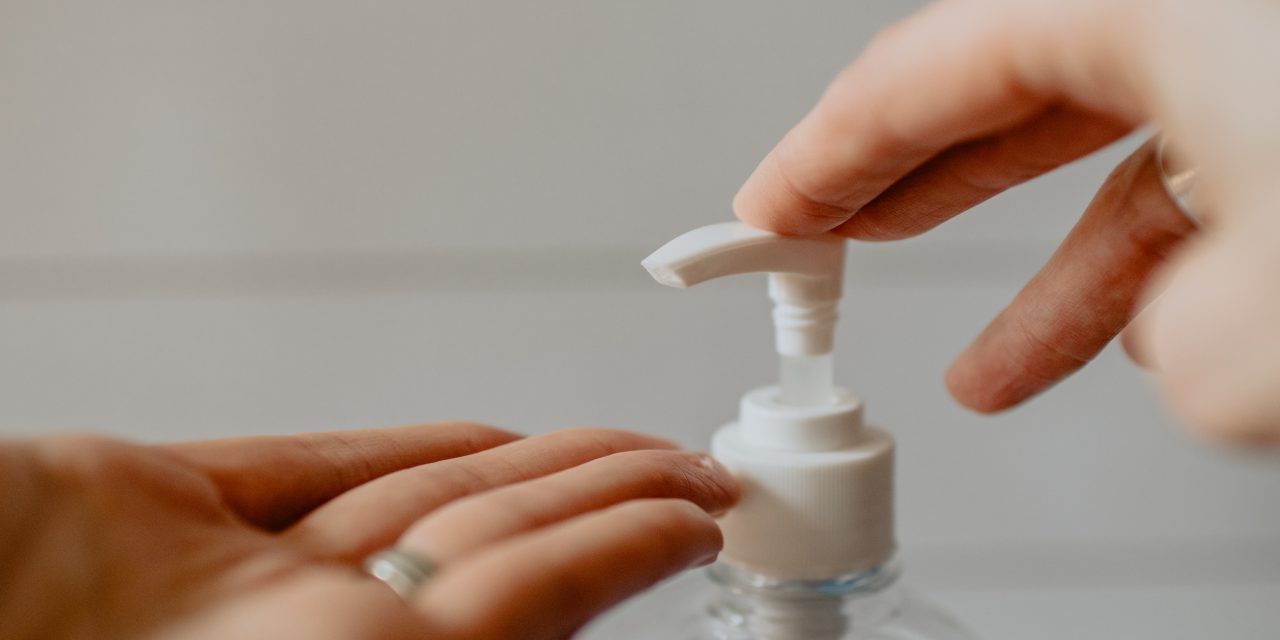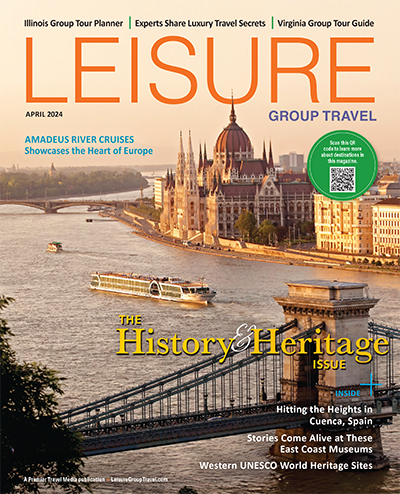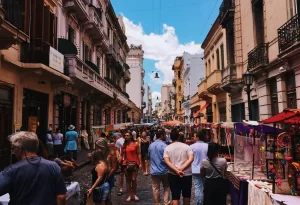Follow these measures on your next group trip to ensure a healthy travel experience for all in a post coronavirus world.
Health issues are one of the most important considerations when planning travel for our groups these days. We want trip participants to be comfortable remain healthy on tour. Airlines, morotcoach companies, restaurants and hotels have all implemented enhanced cleaning and safety measures to instill trust in the traveling public. Suffice to say, any group getting ready to hit the road need to adhere to strict social distancing and group size limitations. This will change the face of group travel for the immediate future, but what about projecting out? How do we ensure a safe, successful journey? With a bit of advance planning, we can mitigate these effects.
Select the Right Trips for Your Group
The first step for good en route health is to select trips planned with your market in mind. If you cater primarily to seniors, be merciless in querying the prospective tour operator about such things as free time, proper pacing, long periods of standing, and amount of walking or steps in a given itinerary. Are enough restroom stops scheduled throughout the day’s activities? Are there too many early morning starts? Trips that offer a basic program with options for those with more energy are a good choice.
Inform Travelers of the Tour’s Activity Level
The next step is to advise readers in your trip literature what level of activity a particular trip entails. Some folks can handle a trip with lots of walking, climbing, uneven terrain, and steps. Others may be extremely limited in terms of mobility and endurance. You don’t want participants (or the tour leader!) to find out after the trip is en route that they can’t keep up, or worse yet, have them overtax themselves and end up getting sick or injured. I like the way adventure companies “tell it like it is” and publish statements like “Four to six hours per day of walking over moderately uneven terrain at sea level.”
More expert advice for group travel professionals
Think Health Issues En Route
Tour leaders need to be trained to think of ways that participants’ health can be maintained along the way. Work with hotels or restaurants to provide healthy menus with low salt, more fresh fruit and vegetables, salads with dressing on the side, whole grain breads and the like. Selected menus should offer less fried foods, gravies, sticky Danish pastries, and overcooked items.
Schedules should allow for eight hours of sleep at night, time to take vitamins, and even perhaps to do a few stretches or mild exercises. Dehydration can be a problem; encourage folks to bring a water bottle so they drink enough water. If air travel is a part of your trip, remind participants to avoid caffeine, alcohol and carbonated drinks and to increase their fluid intake. They should also walk around the plane periodically. Notify them to carry any medications in their carry‐on bag for access on board and in case their checked suitcase should get lost. (Note: check TSA regulations).
Prepare In Advance For Good Health
For a major trip, participants should prepare for good health. They should be reminded to check all prescriptions for refills and not to depend on getting refills en route. Medications taken along should be in the original bottles and should carry not only the trade name, but also the generic name on the label in case an out‐of‐state or overseas doctor would need to know what medication one is taking.
They should take a second pair of glasses and/or a copy of the eyeglass prescription. It’s also good preventative planning to see the dentist beforehand to forestall any sudden midnight cavity emergencies.
You’ll also need to check with your tour operator as to any pre‐trip inoculations required or recommended for a specific itinerary. In some cases you’ll want to recommend that members consult with their personal physician or the health department. Detailed information is available at the Centers for Disease Control.
If your itinerary includes higher altitudes, it’s urgent that you specify the altitudes in your literature. Altitude sickness is caused by oxygen deprivation, and can cause intense headache, shortness of breath, inability to digest food, and other symptoms. Being in good health or excellent physical shape has nothing to do with it; some people are just more prone to it than others. It’s particularly dangerous for anyone with cardiac problems, high blood pressure, asthma, or even serious respiratory problems.
Medical Insurance
Travelers should check their own medical insurance well before the trip and should be aware that Medicare does not pay overseas, although many medi‐gap plans, HMOs, etc. do. One should consider purchasing optional supplemental travel insurance with such benefits as medical evacuation coverage and a hotline for assistance if needed in case of hospitalization or accident on the trip. Companies such as Travel Guard, CSA, Access America and others offer their policies through most travel agencies, or direct to the public.
Urge folks to read the fine print. Most policies do not cover pre‐existing conditions unless one enrolls in this coverage by a specified date. It’s also important to distinguish between coverage that requires them to pay for medical services at the time and then file for reimbursement later versus companies that come to their aid at the time. It’s helpful if they carry a list of any allergies or medications to which they are allergic, as well as the telephone number of their physician in case consultation is needed during the trip.
Know Your Participants’ Health Conditions
Many organizations and tour companies require trip participants to submit a tour questionnaire on which they indicate a family member to contact in case of emergency and to list any physical problems that might prove pertinent. And most tour companies reserve the right to refuse to carry participants with certain conditions, unless they bring a travel companion with him/her. While many tour participants are kind and wish to be helpful to those with illnesses or disabilities, others may voice frustration at having to spend their holiday playing nursemaid.
And you’ll have your hands full leading the tour without having to deal with extreme cases requiring a great deal of personal attention.
Locating Medical Help
Most hotels have a “house doctor”—that is a local doctor who will come to the hotel room (for a sizeable fee). Overseas sources would be the nearest American Consulate or the International Association for Medical Assistance to Travelers (IAMAT), a Canadian foundation that publishes a world‐wide listing of English‐speaking physicians who have agreed to a schedule of fees.







